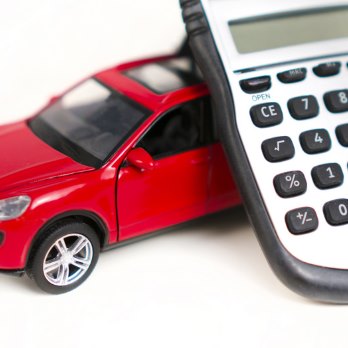Top 2025 Tips for Securing Great Deals on Used Cars in the United States via Repossession Auctions and Online Marketplaces
Repossession auctions and online marketplaces give buyers access to thousands of used cars often priced below retail. This article shares practical 2025 tips, key platforms, and steps to research, bid, and safely buy repossessed or used vehicles across the U.S.

Grasping the Basics of Repossessed Car Auctions in the United States
Repossessed vehicles are those reclaimed by lending institutions after borrowers fail to meet their loan obligations. These cars are typically auctioned to recover unpaid debts and frequently carry prices below retail or private sale levels, making repossessed car auctions an appealing option for value-seeking buyers.
- Sellers of These Vehicles: Banks, credit unions, and other lenders offer repossessed vehicles via specialized online auction sites or traditional auction venues.
- Condition of Vehicles: Auctioned cars range from gently used to those with varying extents of wear or damage. Detailed condition disclosures, photographs, and vehicle histories are commonly provided.
- Title Information: In most cases, repossessed cars come with clean titles that are processed through auction houses or directly from the lending entities.
Utilizing Online Auction Platforms for Repossessed and Used Vehicles
The expansion of online car auctions in 2025 has revolutionized access to repossessed cars and wholesale used vehicles by eliminating geographic constraints and often allowing participation without a dealer license.
- Platforms Permitting Non-Dealer Access: Websites such as Auto Auction Mall, AutoBidMaster, and A Better Bid enable consumers to engage in real-time bidding on repossessed and salvage cars without needing dealer credentials.
- RideSafely Platform: Offering direct entry to thousands of repossessed vehicles nationwide, this platform boasts transparent title processing, thorough vehicle condition reports, and bidding open to those without dealer licenses.
- Leading Auction Houses: Copart and Insurance Auto Auctions (IAAI) dominate the repossessed and salvage car markets. While Copart generally requires dealer licenses, broker services can facilitate consumer bidding. IAAI permits non-licensed buyers through broker assistance with a modest annual fee.
- Niche Auction Houses: Platforms like Cars & Bids and Capital Auto Auction serve enthusiasts or buyers seeking specialized markets such as vintage vehicles, rental fleets, or lightly damaged cars, providing transparent vehicle histories and inspection documentation.
Researching and Preparing for Auctions
Proper preparation is crucial to enhance your likelihood of securing a great deal while minimizing unexpected expenses or risks.
- Valuing Vehicles: Use trusted resources like Kelley Blue Book and Edmunds to compare potential auction prices against current market values. This approach aids in setting realistic bidding limits that account for vehicle condition and additional costs.
- Checking Vehicle Histories: Access reports from the National Motor Vehicle Title Information System (NMVTIS), Carfax, or AutoCheck to verify title status and reveal any prior accidents, salvage records, or mileage discrepancies.
- Assessing Condition Reports: Many auction platforms provide detailed condition disclosures and images. When feasible, attend preview events or inspections to personally evaluate vehicles.
- Registration and Required Documents: Registering for auctions typically demands valid identification (e.g., a U.S. driver’s license), security deposits, and prompt payment adherence. Preparing documentation and payment means in advance streamlines participation.
Smart Bidding Techniques for Auctions
- Establish a Budget and Maximum Bid: Define your spending cap including estimated costs for repairs, fees, and transport. Adhere strictly to your budget to prevent overbidding.
- Analyze Auction Timing: Placing bids near the auction’s close can sometimes reduce price inflation, but be ready for competition on highly sought-after models.
- Be Aware of Extra Costs: Besides the winning bid, factor in buyer premiums, transaction fees (often between roughly $100 to $300 or more), taxes, and shipping or pickup expenses.
- Consider Broker Services if Necessary: For auctions requiring dealer licenses, trusted brokers offer wider inventory access to consumers.
Additional Considerations and Helpful Resources
- Financing Opportunities: Certain platforms provide financing with diverse terms; however, availability and rates vary significantly. Always confirm current terms directly with the auction or sale platform.
- Vehicle Transportation and Collection: Organize prompt vehicle pickup post-purchase. Many auctions assist with logistics or recommend specialized shipping providers.
- Variety of Market Offerings: Auction inventories include compact cars, SUVs, luxury models, fleet vehicles, and salvage titles, enabling buyers to find options tailored to their preferences and budgets.
Conclusion: Optimizing Used Car Deals in 2025
By combining detailed research, informed bidding, and an understanding of the auction environment, buyers throughout the United States can uncover exceptional used car deals at repossessed vehicle auctions and online marketplaces in 2025. Employing reputable platforms like RideSafely, Auto Auction Mall, along with established auction houses such as Copart and IAAI—and supporting this with valuation and history tools—enables consumers to navigate the auction process with confidence and make well-founded purchase choices.
Disclaimer
Prices, vehicle availability, and auction fees vary by location, dealer rules, and prevailing market conditions. Prospective buyers should verify specific details directly with auction platforms or dealerships prior to participating. Financing terms, fees, and promotional offers are subject to change and may differ by region; always consult the auction site or broker for the latest information.
Sources
- Comprehensive insights from an expert guide on repossessed cars and bank repossession auctions in the United States.
- Reviews and descriptions of top online car auction platforms available to consumers without dealer licenses in 2025.
- A detailed overview of various car auction types, bidding strategies, and preparation tips tailored to the U.S. automotive auction market.




